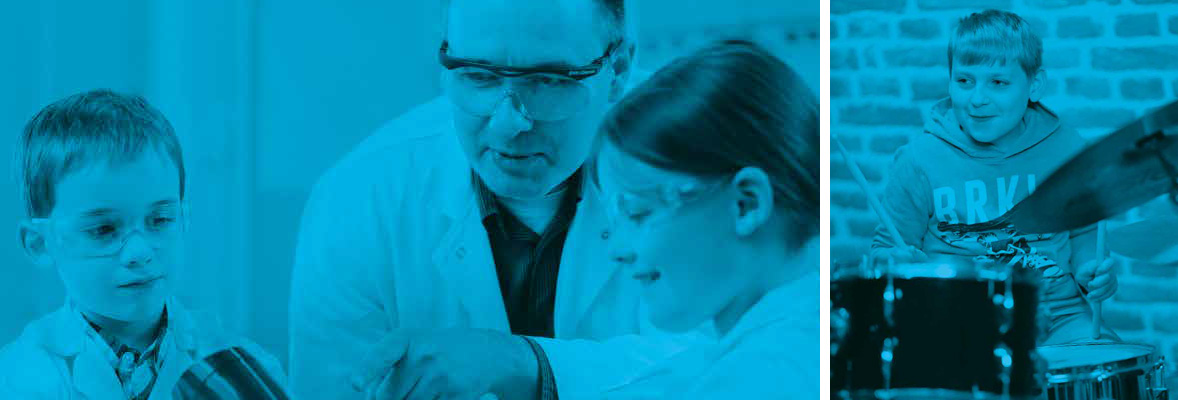“LEON IS NOW ON THE BALL“
The mentors of the “educational coaching” project assisted 18 children at GGS Innenstadt elementary school in Wesel and the Klausenhof Academy in 2018. They are convinced that “all children have potential.” ALTANA has supported the educational project, which aims to give children more equal opportunity, for more than four years.

The time had come. After six months of listening, accompaniment, and cautious approaches Leon* finally let the mentor touch his hand. “It was a great moment for both of us,” says Marianne Podszun. Because now it was clear that the necessary trust had been built. This takes a long time and requires a great deal of care and attention. Marianne Podszun is one of 18 volunteer mentors who are taking part in the “educational coaching” project at GGS Innenstadt elementary school in Wesel. The mentors are currently supporting the development of 18 children, starting in second grade, through so-called educational coaching. The children, who come from socially deprived backgrounds, are promoted and challenged in keeping with their interests and abilities.
Mentors Encourage and Challenge the Children
Eleven-year-old Leon is one of them. Shy and looking down, he stood in front of Marianne Podszun for the first time three years ago. Playing with cloth and hand puppets, she learned about what he likes. Leon likes to go for walks. And since his mentor taught him how to ride a bike, he loves that too. They cycled together along the Rhine. She’ll never forget when Leon asked her with big eyes whether it was really the Rhine.
You Can’t Build Trust Without Empathy
Leon was not the only one who was alone with his neediness. His parents were too. His father lent a helping hand, seeing an opportunity for his son. He said that Leon liked to play the drums. His mentor subsequently organized a visit to a music school – and the boy learned that it’s worth sticking with something, not giving up if something doesn’t work out immediately. “You have to have discipline if you want to achieve something. Leon is now on the ball,” says the mentor proudly. He not only started learning kickboxing, but also does his homework alone now after initially receiving help.
Not only the children but also the mentors have to be on the ball. “Going on an outing sounds easy. But you need a lot of patience, experience, and empathy. That’s very important,” says Hildegard Derksen, a social worker and project coordinator at the Klausenhof Academy. If the mentors didn’t have the ability to listen, to understand the children’s gestures and facial expressions and behavior, and to empathize with the kids, they wouldn’t be able to build a relationship with them. It is a responsible task, especially since the volunteer mentors are not therapists or family helpers, but usually retirees who practiced all kinds of professions.
You feel the volunteer work is worthwhile when you see the children seeking out intimacy and role models, says mentor Monika Ebling. “At the end of the day, you don’t leave the results with the children at the school. And the encouraging and nice moments of support for the children motivate you again and again,” she adds. The mentors not only receive training, qualifications, and further training, but also meet regularly to discuss their experiences and to get advice from Hildegard Derksen and the other mentors. Says Monika Ebling: “We get help just like the children do.”